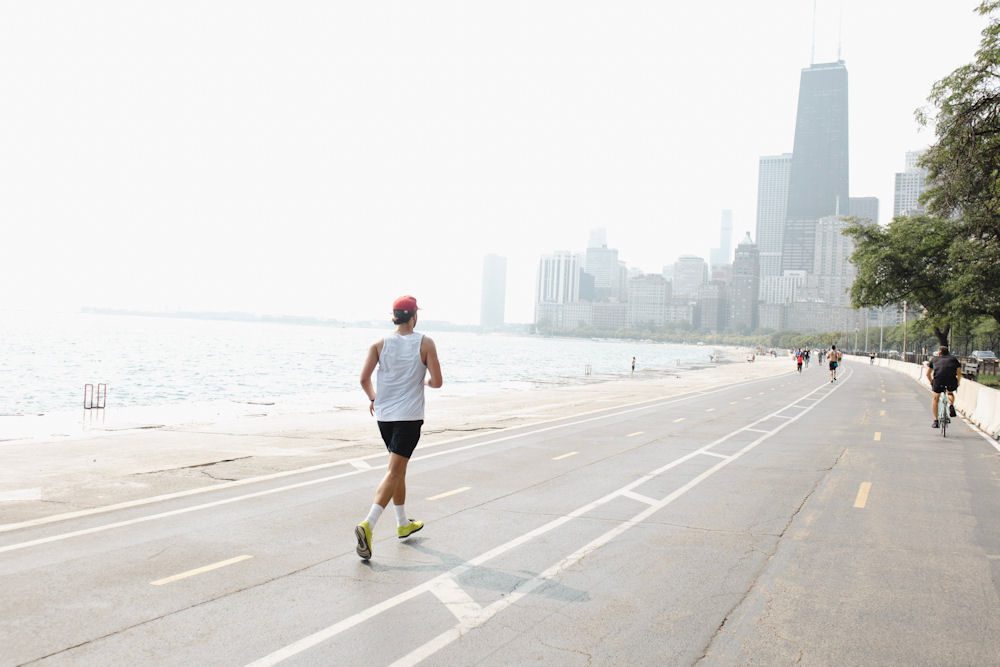Summer can be a challenging time for individuals in recovery, but with the right strategies and support, it is possible to stay sober and enjoy all that the season has to offer. It’s important to discuss the importance of sobriety, the benefits of staying sober, the risks of substance abuse, strategies for maintaining sobriety, navigating social situations, coping mechanisms for cravings, and seeking professional help. Let NIRC help you stay on track this summer and continue winning in the battle against addiction!
Understanding the Importance of Sobriety
 Sobriety is more than just abstaining from drugs or alcohol. It is a way of life that promotes physical and mental well-being. By staying sober, individuals can experience a range of benefits that contribute to their overall happiness and success.
Sobriety is more than just abstaining from drugs or alcohol. It is a way of life that promotes physical and mental well-being. By staying sober, individuals can experience a range of benefits that contribute to their overall happiness and success.
Embracing sobriety involves a commitment to self-improvement and personal growth. It allows individuals to fully engage with their emotions and experiences without the numbing effects of substances. This heightened awareness can lead to a deeper sense of fulfillment and purpose in life. Having a relapse prevention plan in place during the summer can help you maintain your sobriety and keep moving forward on your journey.
Factors Contributing to Summertime Relapse
Several factors contribute to the increased risk of relapse during the summer, including social, environmental, and psychological triggers. Understanding these factors can help in developing strategies to maintain sobriety.
Some of the factors and triggers contributing to summertime relapse may include:
- Increased Social Gatherings: Summer is often associated with more social events like barbecues, beach parties, weddings, and holidays. These gatherings can sometimes involve alcohol or other substances, increasing temptation and peer pressure.
- Changes in Routine: The structured routine that many people maintain throughout the year can be disrupted during the summer due to vacations, time off work, or changes in daily schedules. This lack of routine can lead to feelings of instability and boredom, both of which are common relapse triggers.
- Vacationing and Travel: Going on vacation or traveling can expose individuals to new environments where they might encounter substances. The stress of travel or the desire to “let loose” can also contribute to relapse.
- Emotional Triggers: Seasonal affective disorder (SAD) can occur during the summer, stemming from excessive heat, changes in daylight hours, or disrupted sleep patterns. These fluctuations can increase vulnerability to relapse.
- Environmental Triggers: Warm weather often encourages outdoor activities at places like beaches, festivals, and concerts where substance use might be prevalent. The environment itself can serve as a trigger.
By identifying possible summertime relapse triggers, individuals in recovery can take proactive steps, such as planning sober activities, maintaining a structured routine, seeking support, and being mindful of their emotional health, to navigate the summer months successfully.
Strategies for Maintaining Sobriety
While staying sober may seem challenging, there are various strategies that individuals can implement to maintain their sobriety successfully.
Embarking on the journey of sobriety is a courageous step toward a healthier and more fulfilling life. It is essential to recognize that the path to recovery is unique for each individual, and there is no one-size-fits-all approach. By exploring different strategies and finding what works best for you, you can create a solid foundation for long-lasting sobriety.
Having a strong support network is crucial for long-term sobriety. Surrounding yourself with individuals who understand and support your recovery journey can provide the encouragement and accountability you need to stay on track. Consider attending support group meetings or therapy sessions to connect with others who are also committed to sobriety.
Moreover, building a support network extends beyond just seeking help from others. It also involves being open and honest about your struggles and progress. By sharing your experiences with people you can trust, you not only lighten the burden but also create a sense of community that fosters understanding and empathy.
Adopting healthy habits can also strengthen your sobriety. Engage in regular exercise, eat nutritious meals, and prioritize self-care. Physical and mental well-being go hand in hand, and by taking care of your overall health, you are better equipped to handle the challenges that may arise.
In addition to physical health, mental well-being plays a significant role in maintaining sobriety. Consider incorporating mindfulness practices, such as meditation or journaling, into your daily routine to cultivate a sense of inner peace and clarity. By nurturing your mind, body, and spirit, you create a harmonious environment that supports your sobriety journey.
Social situations can be triggers for individuals in recovery, especially during the summer when parties and gatherings are more frequent. However, with preparation and a few coping strategies, it is possible to navigate these situations while staying sober.
One effective way to prepare for social events is by having a support system in place. This can include a trusted friend, sponsor, or therapist whom you can reach out to for guidance and encouragement. Additionally, practicing mindfulness techniques such as deep breathing or visualization can help you stay grounded and focused on your sobriety goals amidst social pressures.
Sober Summer: Some Activities You Can Enjoy
 Summer offers a plethora of activities that can be enjoyed without the need for drugs or alcohol. Explore outdoor hobbies such as hiking, swimming, or camping. Engage in creative pursuits like painting or writing. By discovering new ways to have fun while sober, you can fully embrace the joys of summer!
Summer offers a plethora of activities that can be enjoyed without the need for drugs or alcohol. Explore outdoor hobbies such as hiking, swimming, or camping. Engage in creative pursuits like painting or writing. By discovering new ways to have fun while sober, you can fully embrace the joys of summer!
Furthermore, volunteering for a cause you are passionate about can provide a sense of fulfillment while connecting you with like-minded individuals who share your values. This social engagement can create a supportive community outside of traditional social settings, reinforcing your commitment to sobriety.
Coping Mechanisms for Cravings
Cravings are a common experience for individuals in recovery, especially in the early stages. However, there are effective coping mechanisms that can help you overcome these cravings and stay committed to your sobriety.
Understanding the root cause of your cravings is essential in developing effective coping strategies. Cravings can be triggered by various factors such as stress, boredom, or social situations. By identifying what prompts your cravings, you can better equip yourself to address them head-on.
Physical Activities
Engaging in physical activities can also distract your mind from cravings. Exercise releases endorphins, which can improve your mood and reduce the intensity of cravings. Whether it’s going for a run, engaging in yoga therapy, or playing a sport, find a physical activity that you enjoy and incorporate it into your daily routine.
Furthermore, physical activities not only serve as a distraction but also contribute to your overall well-being. Regular exercise can boost your self-esteem, enhance your cognitive function, and promote better sleep patterns. By making physical activities a consistent part of your routine, you are combating cravings and nurturing your physical and mental health.
Achieve Sobriety at Northern Illinois Recovery Center
In some cases, seeking professional help may be necessary to maintain sobriety. There are numerous resources and interventions available to support individuals on their recovery journey.
Embarking on the path to sobriety can be a challenging and complex journey, and having the guidance and expertise of a professional can make a significant difference in one’s recovery process. Professionals in the field of addiction treatment are equipped with the knowledge and skills to provide personalized support tailored to each individual’s needs.
Therapy and Counseling Options
Therapy and counseling can provide invaluable support in addressing the root causes of addiction and developing effective coping strategies. Consider individual therapy, group counseling, or other specialized modalities that align with your needs and preferences.
Through therapy sessions, individuals can explore underlying issues that may have contributed to their addiction, learn healthy ways to manage stress and emotions, and develop skills to navigate challenges without resorting to substance use. The therapeutic relationship formed between the individual and the therapist can foster a sense of trust and understanding, creating a safe space for healing and growth.
Medications and Treatments for Addiction
For some people, medications and other evidence-based treatments can be beneficial in managing cravings and reducing the risk of relapse. Consult with a medical professional or addiction specialist to explore the available options and determine the most suitable medication-assisted treatment plan for your unique circumstances.
Medications such as methadone, buprenorphine, or naltrexone may be prescribed to help individuals manage withdrawal symptoms and cravings associated with substance use disorders. These medications, when used in conjunction with therapy and other supportive interventions, can significantly improve the chances of long-term recovery and sobriety.
NIRC Supports Your Journey Toward Recovery!
 Staying sober this summer requires commitment and proactive strategies. By understanding the importance of sobriety, creating a strong support network, developing healthy habits, navigating social situations confidently, implementing coping mechanisms for cravings, and seeking professional help, you can enjoy a fulfilling summer while maintaining your sobriety. Remember, you are not alone in your journey, and support is always available to help you stay on the path of recovery! Contact Northern Illinois Recovery Center to learn more about how you can continue to fight addiction in your life.
Staying sober this summer requires commitment and proactive strategies. By understanding the importance of sobriety, creating a strong support network, developing healthy habits, navigating social situations confidently, implementing coping mechanisms for cravings, and seeking professional help, you can enjoy a fulfilling summer while maintaining your sobriety. Remember, you are not alone in your journey, and support is always available to help you stay on the path of recovery! Contact Northern Illinois Recovery Center to learn more about how you can continue to fight addiction in your life.




